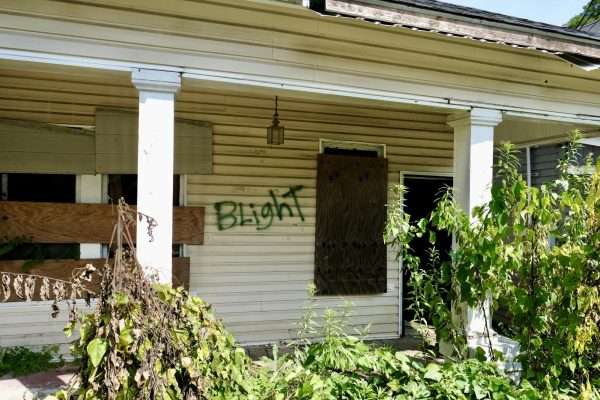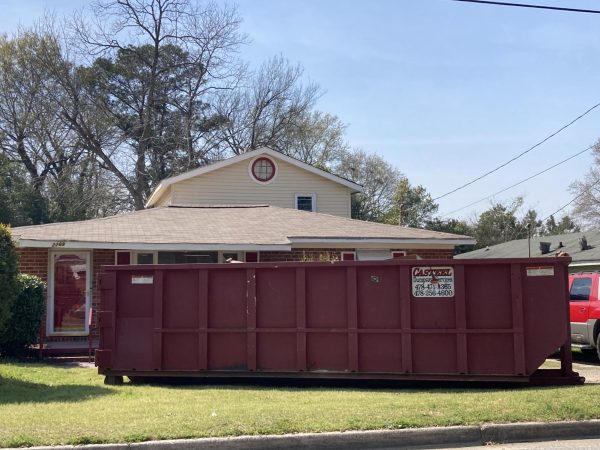Is the U.S. in a recession? It’s complicated.
Mike Cohen/Flickr/CreditScoreGeek
Economists aren’t all on the same page about whether the U.S. is in a recession.
At the most simple level, a recession is when Gross Domestic Product, or GDP, declines over a prolonged period. GPD is the number of goods and services produced and exchanged within a country. It is essentially an indicator used to gauge the productivity of a nation’s economy.
So, a recession is when an economy slows down.
‘When the rate of growth goes down, you will see these effects,” Andres Maroquin, professor of economics at Mercer University, said. “But everything doesn’t happen all at once. Right, so it’s complex.”
Recessions are worrisome because they often go hand-in-hand with job losses. Companies need to weather the storm through the economic troubles, and that often means slimming down.
“They have to be very frugal, too,” Maroquin said. “Like, if there is uncertainty, then you wanted to buy that machine, well you better wait a little bit. So they might say I’m going to wait a couple months to see if I want to do it.”
The past two quarters the economy has shrunk, according to the Wall Street Journal. That means that, according to a common technical definition, the U.S. is in a recession.
However, the U.S. isn’t seeing job growth slow in the way that is normally associated with a recession. Since this time around isn’t looking like the recessions we are used to, some economists say we aren’t in recession territory.
“Some others will say, well we don’t not seeing a big problem in unemployment rate,” Maroquin said. “So until we start to see these increases to the unemployment rate, then we can say yes this recession is really impacting the daily lives of Americans.”
But many economists are still worried that those layoffs are likely coming. Maroquin himself has his own theory. While job growth is continuing, it might be because record levels of inflation makes it cheaper to hire labor.
“Wages of people don’t act as quickly. So companies have higher prices for products but wages haven’t increased,” Maroquin said. “Some of these companies might be hiring workers. You know, because their prices are increasing, but their costs are not. That’s why it looks pretty good.”
But, on the other hand, the money in workers’ pockets isn’t going as far because prices are rising. Eventually, Maroquin says that employees are going to demand higher wages.
“But when wages are going to increase because they have to catch up with inflation, is when the laying off of workers may start,” Maroquin said. “It’s hard to predict.”
To Maroquin, the economic force ravaging the economy is inflation. This economic pinch stems from economic decisions during the COVID-19 pandemic.
“The problem right now is that we are still not in a recession. We may not be in a recession. But what caused a recession? That’s the question,” Maroquin said. “And it seems partial because of the management of the money supply of the disease we were facing.”
Maroquin points to money from stimulus checks that got people spending money when supply chain issues decreased the supply of many goods.
Plus, the U.S. Central Bank, the Federal Reserve, lowered interest rates during the pandemic, which made people and companies more willing to spend money since it was cheaper.
“During COVID, we expanded the money supply by trillions of dollars. That would reduce interest rates,” Maroquin said. “So the Federal Reserve is trying to fix a problem the Federal Reserve created. And that’s part of the issue.”
All of this fits into inflation issues. People had money and people wanted to buy things with it. But due to supply chain issues, many companies didn’t have the goods to meet consumer demands, so they often raised prices.
With record-high inflation, Maroquin said that the Federal Reserve is fighting to keep inflation down by increasing interest rates. But, that could push us into a recession, since the entire goal of rising interest rates is to take money out of the economy and slow growth. If they push too hard, it could tip the scale.
“They are trying to get this inflation to go down. But to do that, you have to get money out of the economy,” Maroquin said. “And then it gets to a situation with less investments and things like that.”
Here in Macon, Maroquin expects the hospitality sector – particularly restaurants – to start to take a hit, since it is an area where people reduce their spending when times get tight.
“People start to think about what expenses are necessary – like really necessary,” Maroquin said. “People stop consuming certain things.”

















